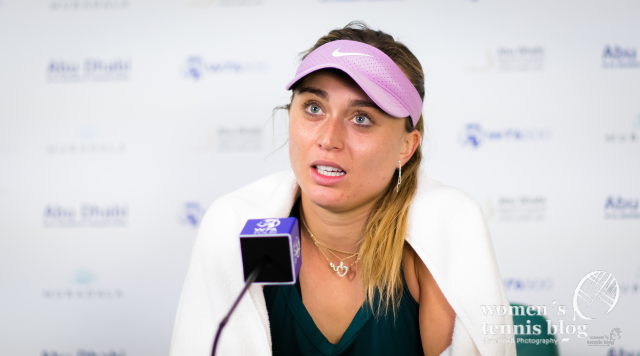Spanish world No.67 Paula Badosa is going through the worst period of her career as one of COVID-19 positive players in hard quarantine at the Australian Open.

Several competitors have tested positive for COVID-19, but Badosa is the first who shared the information publicly. On January 21, the 23-year-old revealed her test result, saying that she felt unwell and experienced some symptoms.
However, what is troubling Badosa more than the viral infection are her conditions in the quarantine and her inability to prepare for the Australian Open. The WTA player told Spanish newspaper Marca:
I feel abandoned because I don’t have training equipment which I requested five days ago, I haven’t been told which type of the virus I have, I’ve had no information from the tournament.
The earliest Badosa will be able to leave her hotel room will be on January 31, but if it turns out that she’s been infected with the new strain of coronavirus, her hard quarantine will be extended to February 5, which will make it impossible for her to get in shape for the Australian Open.
It’s far and away the worst experience of my career. The conditions here are lamentable, I wasn’t expecting that. The number one thing people recommend when you have the virus is to open the windows to let in air, but I don’t have windows in my hotel room and it’s barely 15 meters square.
A great number of players are enduring their hard quarantine as a necessary part of their job during the pandemic, but several players felt the need to voice their discontent with the situation they claim was unexpected. Basides Badosa, the most vocal were Belinda Bencic, Yulia Putintseva and Sorana Cirstea. (source: The Guardian)





She came to Australia. She brought COVID. What does she expect, the Hilton? At this point her training for an event she might not even be able to play in is not the priority for anyone except her. The priority is protecting the Australian public from her disease. And in providing her with first-class medical treatment if she needs it.